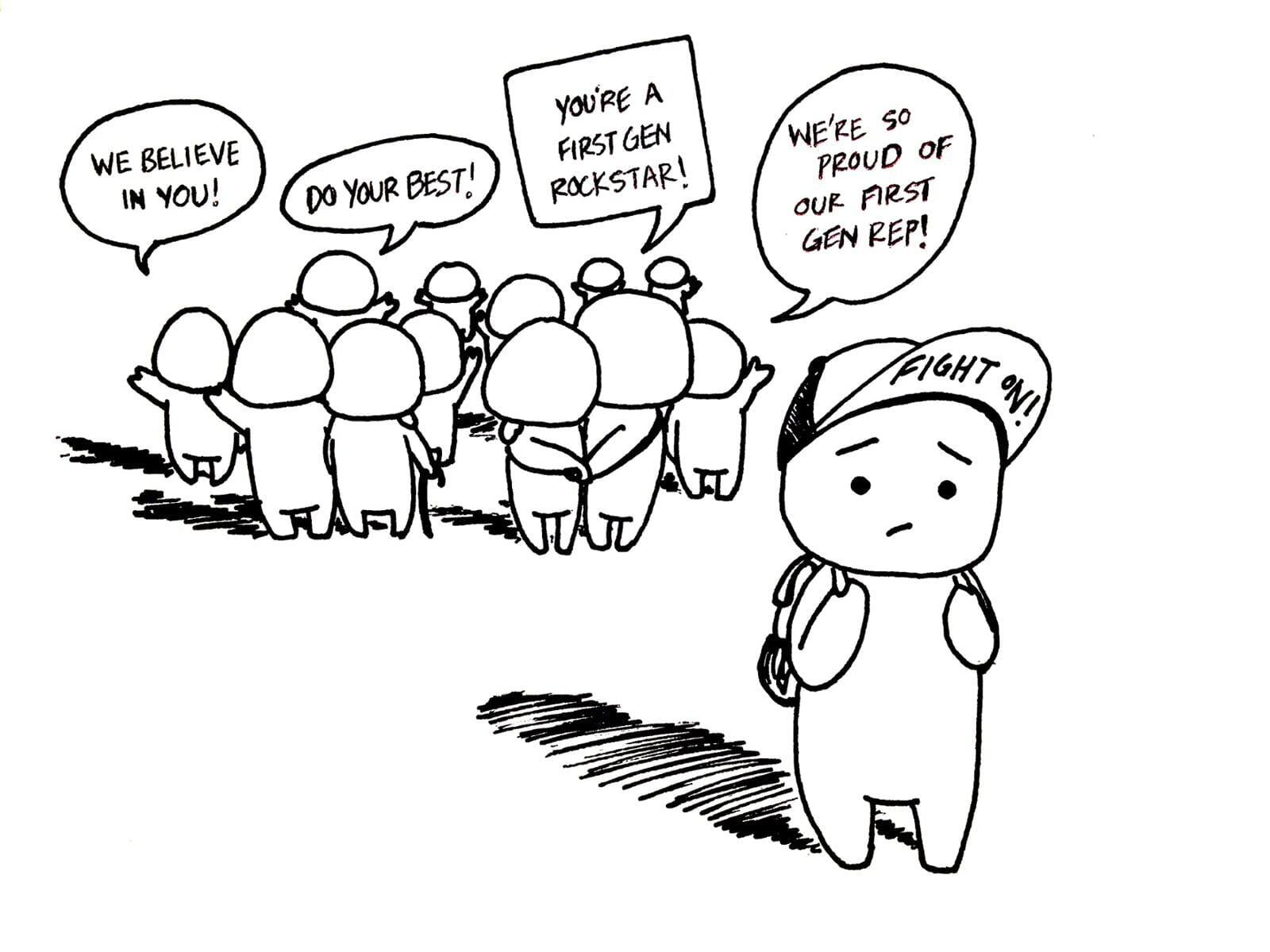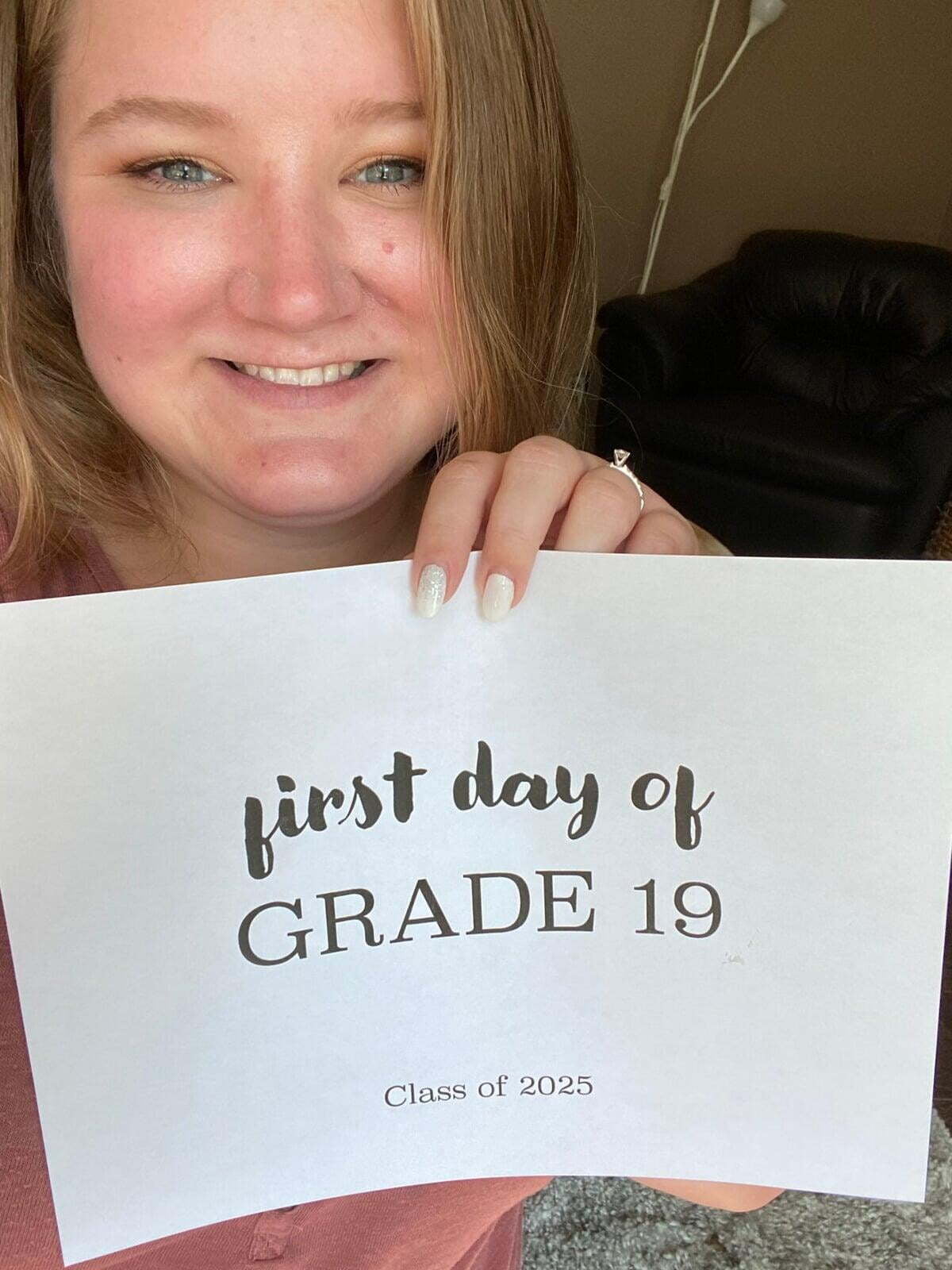Navigating Academia as a First-Generation Student
Authors: Tegan Hargreaves and Vanessa Parise


Vanessa's Story
Introduction
My name is Vanessa and I am a first year Master's Student in the Neuroscience Graduate Program. I consider myself to be a first-generation graduate student as I am the first person in both my immediate and extended family to pursue a career in the sciences and attend a post-secondary institution. Having this opportunity has brought me both joy and fear as I continue to navigate the academic landscape.
1. Applying to University for my M.Sc.: As you are all aware, applying to graduate school is much more involved than the undergraduate application. Here, I struggled with three main issues.
- My elevator pitch: One of the largest parts of the graduate application is the personal statement. In this statement, it is crucial to paint a good picture of yourself. I struggled with how I was going to format everything I wanted to portray myself to application reviewers.
- Cold emailing professors: Once I thought I had a good grip on my elevator pitch, I had to start applying it to securing myself a potential supervisor. I was unsure as to how much information I should include, what would make me stand out compared to other applicants, and if a professor answered, how would I approach this first meeting.
- Feeling as if there was no one to help: The overarching feeling I had with all aspects of the application process was feeling that I had no one to help me. There were people I had around me to review my work but there was no one who could truly provide advice from a place of experience. For many students in my position, this becomes the scariest part of the journey.
- Although I was overjoyed to be accepted in my second application year, I had this lingering imposter syndrome that made me think that I was just lucky this time around. The reality of the situation is that we all earned a spot in this program regardless of how we feel about it.
- Another thing I struggle with are my own expectations as a graduate student. Just like graduating from high school to university, there is always a transition period. Navigating this transition has been challenging as I am still unsure of what is expected of me. Thankfully, through the use of some of the resources available to us, I have been able to figure things out.
Although I am still very early in my academic journey, I have learned a lot from my trials and tribulations as a first-generation graduate student. Below are my key takeaways.
- Think highly of yourself
- Talk to senior graduate students
- The Internet can be your best friend for general tips
- Reach out to your program coordinators for guidance
- Ask for help when you need it

Tegan's Story
Introduction
My name is Tegan and I am a second-year PhD Neuroscience Graduate Program student. I finished my BSc in Psychology: Brain and Cognition (now the Neuroscience program) at the University of Guelph in 2015 and my MSc in Neuroscience at Queen’s
University in 2019.
Navigating Graduate School: I first heard the term “first gen” a few years back and quickly found a community of other academics that I easily related to. Neither of my wonderful parents attended post-secondary school and work in more “blue collar” fields; I have a younger sister who completed a certificate program through George Brown. A few of my extended family members have degrees, but none are scientists or in academia. In my undergraduate degree, I struggled with managing courses and time, but in my graduate career, I’ve found the divide to feel much larger.
- When you are emailing with someone, always refer to them as Dr. _____ (if they have a PhD/MD) and from there on out, how they sign their emails is their preferred title.
- It’s okay to say “This is something new to me. Can you help me with it?”
- Taking a deep breath to stop and think about the question has always helped me feel more put together and confident when answering.
- Therapy is never a bad idea!
- Get involved with as much as you can. You’ll meet other students, and they’ll help you figure out what to do and how to get where you want to be. Building this network is so important. A lot of academia is who you know - having more connections is never a bad thing!
- No one knows what they’re doing. The people that you think have it together more than likely are making it up as they go. I know that’s how I feel!